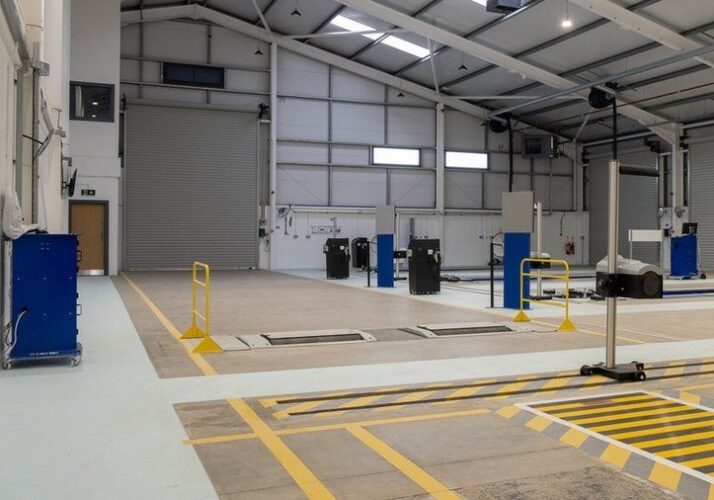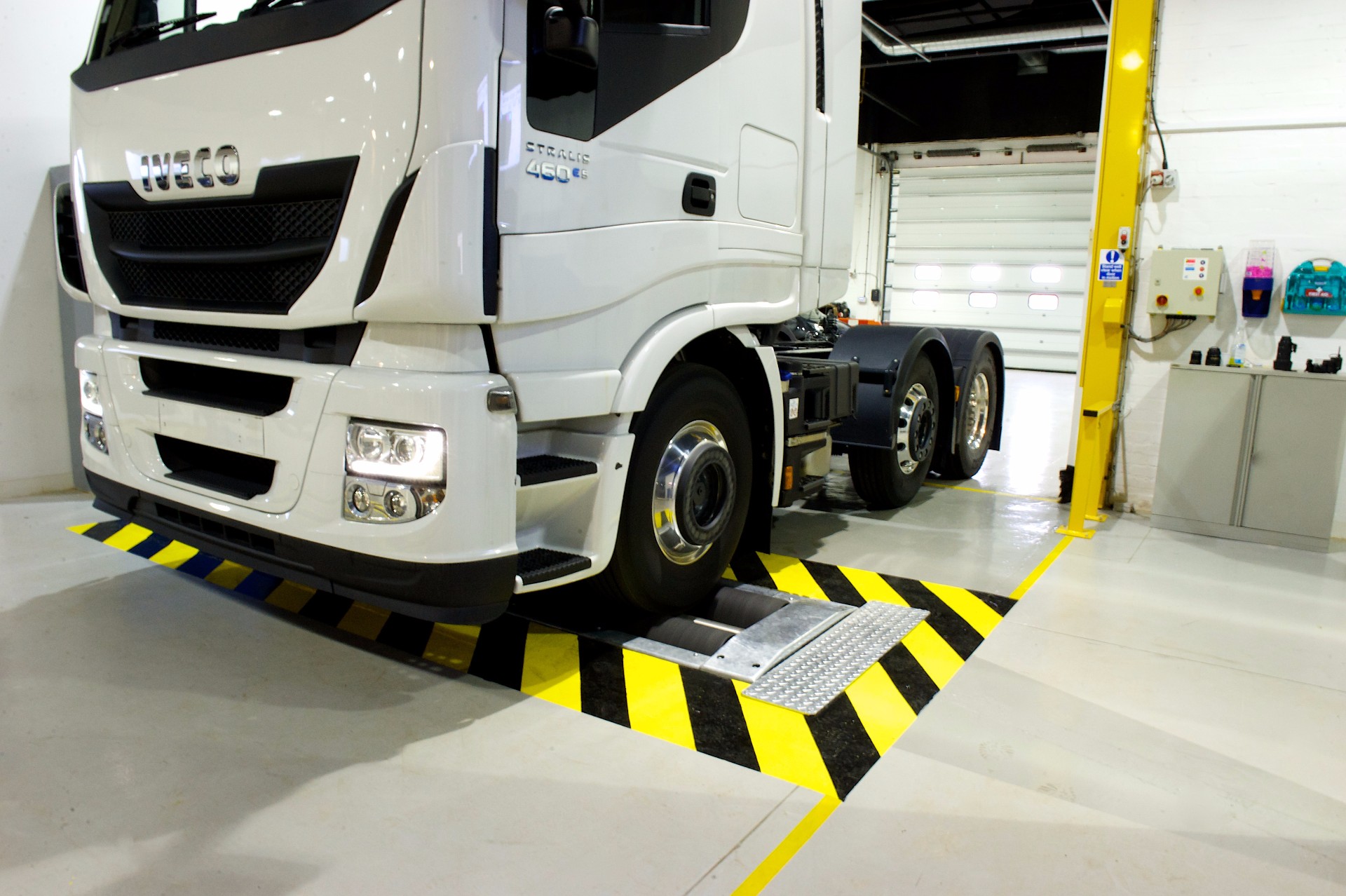
Testing brake efficiency is an essential component of regular fleet maintenance. A calibrated roller brake tester is recommended for safety inspections to assess braking performance and record brake efficiencies. Despite this, many fleet operators outsource this vital activity, resulting in reduced vehicle availability and increased testing costs.
The DVSA recommends operators have their brakes tested by a roller brake tester at least four times a year. With a fleet of three vehicles, for example, one vehicle must be taken to a testing facility every month. Additionally, the vehicle must be loaded for a brake test unless it can be tested unladen, ideally to at least 65% of its total maximum weight.
When you add the administrative chore of scheduling the vehicles for a test, making them available within the fleet operational schedule, ensuring that they comply with the loading requirements and establishing a process to retain brake test documentation with the vehicle inspection records, the task becomes a significant undertaking.
The operator needs an available driver to test a vehicle at a workshop. In addition, consider the fuel costs and a typical axle test charge of £20. When you factor in all these costs, the annual cost of testing a single vehicle can approach the £500 mark.

Tecalemit advises that purchasing a commercial vehicle brake tester may not be as challenging as it initially seems. If a company has a small fleet of vehicles, it can expect to recoup its investment in approximately 24 months. This can be achieved using the equipment to perform third-party fleet tests. The benefits to the fleet operator can be huge. Tecalemit’s DE/9700 commercial vehicle roller brake tester allows the operator to build their fleet database. It automatically records vehicle test results and reduces the administrative activity of creating a manual records system.
It is a significant benefit to test a vehicle quickly, with minimal downtime for the trailer, tractor, and driver and without third-party fees. Regular brake testing can prevent system failures and on-road issues, in addition to safety checks. Early diagnosis of brake binding and ovality problems can lead to preventative maintenance scheduling. Addressing the binding brake that causes overheating and wheel bearing damage promptly can reduce the risk of subsequent on-road failure, costly call-out repairs, and delivery delays.
The Tecalemit DE/9700 unit offers many advantages. It has powerful 15kW motors, a soft-start feature, and an eight-sensor axle weighing system integrated into the roller bed/frame system. This system enables automatic calculation of brake efficiency, making it easy for operators to use. One or two people can operate it using an RF touchscreen remote or a PC workstation. Users can choose between automatic or manual mode, and the operator can create a vehicle database for accurate record-keeping.

With Tecalemit’s DE/9700, you can use leasing options to spread the cost over five years. You can leverage your investment by offering third-party tests and potentially see the equipment pay for itself in around two years. You can cover the brake tester’s ongoing maintenance and calibration costs by continuing to provide a brake testing service to third-party operators. This means that after two years, the provision of brake testing almost pays for itself.
By carrying out brake tests in-house without sending a driver and vehicle to an external test centre, you could increase the vehicle’s availability for work. Contact Tecalemit today to discover how you could benefit from a Tecalemit brake tester and gain more control over your fleet.